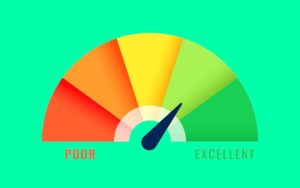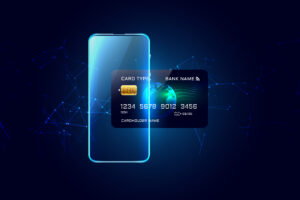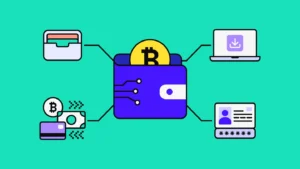
The power of credit cards: use them wisely to avoid financial pitfalls and unnecessary costs. Image: PixaBay
Understanding how to manage a credit card responsibly can be incredibly beneficial. With the right approach, you can leverage the advantages of credit cards, such as convenience, rewards, and credit building, while avoiding unnecessary costs and debt. Let’s dive into some smart ways to get the most from your card!
Should You Get a Credit Card?
Credit cards come with several benefits. They’re a convenient tool for purchases, and many cards offer rewards on spending. Additionally, a credit card can be an effective way to build or improve your credit history. Before applying, however, it’s crucial to understand how credit cards work so you can select the best card for your needs and use it wisely.
Key Takeaways
- Credit cards are helpful for building or rebuilding credit history.
- They provide a short-term borrowing option for daily expenses.
- Understanding grace periods and interest charges is essential for minimizing costs.
- Your credit score will be impacted by your credit card usage.
How Credit Cards Work
A credit card functions like a short-term loan. When you make a purchase, you’re essentially borrowing money from the credit card company, which you’ll repay later. If you pay off your balance by the due date, you avoid interest charges.
Each card comes with a credit limit based on factors like your credit score and income. As you use the card, the available credit decreases, and when you make payments, the credit becomes available again. Each month, you’ll receive a statement detailing your activity, balance, minimum payment, and due date.
Reading Your Credit Card Statement
Every month, your credit card statement will outline:
- Total card balance
- Available credit limit
- Purchases made during the billing cycle
- Minimum payment due
- Payment due date
While it’s possible to make only the minimum payment, paying more when possible is wise. If you pay the balance in full during the grace period (typically 20–30 days), you can avoid interest. If not, interest will accrue based on the card’s annual percentage rate (APR). This rate can vary for different activities, such as purchases, cash advances, and balance transfers.
Using Your Credit Card for Purchases
Using a credit card is easy. In stores, you may swipe, insert, or use contactless payment via a digital wallet. For online shopping, simply enter your card number, expiration date, and CVV security code. During the transaction, the credit card network, merchant, and issuer work together to approve and process the payment electronically.
Smart Tips for Using Your Credit Card
- Pay Your Bill on Time
- Why It’s Important: Payment history is a major factor in your credit score. Paying on time helps build a positive history, while missed or late payments can hurt your score.
- Tip: Set up automatic payments or reminders to avoid missed payments.
- Understand Interest Calculations
- Why It’s Important: Carrying a balance means interest, which can make purchases more expensive. Knowing your APR and grace period helps you avoid interest by paying in full each month.
- Tip: If you have balances with different APRs, your payments may be applied differently. Typically, payments go toward the balance with the highest APR first.
- Watch Out for Fees
- Common fees include annual, foreign transaction, balance transfer, cash advance, late payment, and returned payment fees. Check these fees before applying.
- If you plan to travel internationally, consider a card with no foreign transaction fees.
- Monitor Your Balance
- Why It’s Important: Credit utilization, or the percentage of your credit limit in use, affects your credit score. Aim to keep it low by only charging what you can afford to pay off.
- Tip: It’s a myth that carrying a balance improves your credit score. On the contrary, low balances and consistent full payments can save money and boost your score.
Can You Earn Rewards with a Credit Card?
Many credit cards offer rewards, including cash back, travel points, or other perks. Choose a rewards card that aligns with your spending habits. For example, frequent travelers might benefit from a card with travel rewards, while others may prefer cash back on everyday purchases.
Can You Pay Bills with a Credit Card?
Yes, you can use a credit card to pay many bills, including utilities and medical bills. However, remember that any balance carried on your card accrues interest, so it’s wise to pay the card off promptly.
Using a Secured Credit Card
Secured credit cards require an initial deposit, which typically becomes your credit limit. This deposit minimizes risk for the issuer, making these cards more accessible if you have limited or damaged credit history. By paying off balances responsibly, you can establish or rebuild credit over time.
The Bottom Line
Credit cards can be a valuable tool for building credit and earning rewards if used responsibly. Be mindful of interest rates and fees, and strive to pay your balance in full each month. Additionally, periodically checking your credit reports helps ensure that your account activity is accurately reported and can alert you to any potential fraud.
FAQs
1. Can I Earn Rewards with a Credit Card?
Yes! Many credit cards offer rewards programs, including cash back, travel points, or other benefits. Consider your spending habits when selecting a rewards card to maximize your benefits.
2. Is It Safe to Pay Bills with a Credit Card?
You can pay many bills with a credit card, but remember that this can increase your debt. It’s essential to pay your card balance promptly to avoid accumulating interest.
3. What Is a Secured Credit Card?
A secured credit card requires a deposit that usually matches your credit limit. This card type is a good option if you’re trying to establish or rebuild credit.
4. Can Carrying a Balance Help My Credit Score?
No, carrying a balance does not help your credit score. Keeping a low credit utilization rate and paying your balance in full are more beneficial for your credit health.
5. What Happens If I Miss a Credit Card Payment?
Missing a payment can hurt your credit score and may result in late fees. Setting up reminders or automatic payments can help ensure you never miss a due date.






